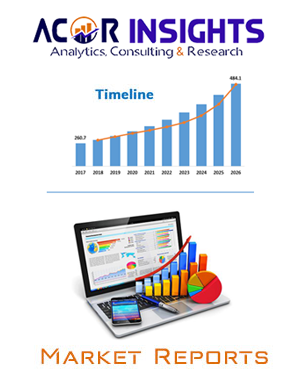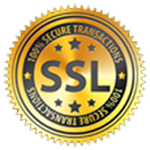The global Antifog Additives market was valued at 269.52 Million USD in 2020 and will grow with a CAGR of 2.62% from 2020 to 2027, based on HNY Research newly published report.
Considering the influence of COVID-19 on the global Antifog Additives market, this report analyzed the impact from both global and regional perspectives. From production end to consumption end in regions such as North America, Europe, China, and Japan, the report put emphasis on analysis of market under COVID-19 and corresponding response policy in different regions.
By Market Players:
Company A
Company B
By Type
Glycerol Esters
Polyglycerol Esters
Sorbitan Esters of Fatty Acids
Ethoxylated Sorbitan Esters
By Application
Food Packaging Films
Agricultural Films
Points Covered in The Report
The points that are discussed within the report are the major market players that are involved in the market such as market players, raw material suppliers, equipment suppliers, end users, traders, distributors and etc.
The complete profile of the companies is mentioned. And the capacity, production, price, revenue, cost, gross, gross margin, sales volume, sales revenue, consumption, growth rate, import, export, supply, future strategies, and the technological developments that they are making are also included within the report. This report analyzed 12 years data history and forecast.
The growth factors of the market is discussed in detail wherein the different end users of the market are explained in detail.
Data and information by market player, by region, by type, by application and etc, and custom research can be added according to specific requirements.
The report contains the SWOT analysis of the market. Finally, the report contains the conclusion part where the opinions of the industrial experts are included.
Key Reasons to Purchase
To gain insightful analyses of the market and have comprehensive understanding of the global market and its commercial landscape.
Assess the production processes, major issues, and solutions to mitigate the development risk.
To understand the most affecting driving and restraining forces in the market and its impact in the global market.
Learn about the market strategies that are being adopted by leading respective organizations.
To understand the future outlook and prospects for the market.
Besides the standard structure reports, we also provide custom research according to specific requirements.
The report focuses on Global, Top 10 Regions and Top 50 Countries Market Size of Antifog Additives 2016-2021, and development forecast 2022-2027 including industries, major players/suppliers worldwide and market share by regions, with company and product introduction, position in the market including their market status and development trend by types and applications which will provide its price and profit status, and marketing status & market growth drivers and challenges, with base year as 2020.
Key Indicators Analysed
Market Players & Competitor Analysis: The report covers the key players of the industry including Company Profile, Product Specifications, Production Capacity/Sales, Revenue, Price and Gross Margin 2016-2021 & Sales by Product Types.
Global and Regional Market Analysis: The report includes Global & Regional market status and outlook 2022-2027. Further the report provides break down details about each region & countries covered in the report. Identifying its production, consumption, import & export, sales volume & revenue forecast.
Market Analysis by Product Type: The report covers majority Product Types in the Antifog Additives Industry, including its product specifcations by each key player, volume, sales by Volume and Value (M USD).
Markat Analysis by Application Type: Based on the Antifog Additives Industry and its applications, the market is further sub-segmented into several major Application of its industry. It provides you with the market size, CAGR & forecast by each industry applications.
Market Trends: Market key trends which include Increased Competition and Continuous Innovations.
Opportunities and Drivers: Identifying the Growing Demands and New Technology
Porters Five Force Analysis: The report will provide with the state of competition in industry depending on five basic forces: threat of new entrants, bargaining power of suppliers, bargaining power of buyers, threat of substitute products or services, and existing industry rivalry.
COVID-19 Impact
Report covers Impact of Coronavirus COVID-19: Since the COVID-19 virus outbreak in December 2019, the disease has spread to almost every country around the globe with the World Health Organization declaring it a public health emergency. The global impacts of the coronavirus disease 2019 (COVID-19) are already starting to be felt, and will significantly affect the Antifog Additives market in 2021. The outbreak of COVID-19 has brought effects on many aspects, like flight cancellations; travel bans and quarantines; restaurants closed; all indoor/outdoor events restricted; over forty countries state of emergency declared; massive slowing of the supply chain; stock market volatility; falling business confidence, growing panic among the population, and uncertainty about future.
1 REPORT OVERVIEW
1.1 Study Scope
1.2 Key Market Segments
1.3 Players Covered: Ranking by Antifog Additives Revenue
1.4 Market Analysis by Type
1.4.1 Global Antifog Additives Market Size Growth Rate by Type: 2021 VS 2027
1.4.2 Glycerol Esters
1.4.3 Polyglycerol Esters
1.4.4 Sorbitan Esters of Fatty Acids
1.4.5 Ethoxylated Sorbitan Esters
1.5 Market by Application
1.5.1 Global Antifog Additives Market Share by Application: 2022-2027
1.5.2 Food Packaging Films
1.5.3 Agricultural Films
1.6 Study Objectives
1.7 Years Considered
1.8 Overview of Global Antifog Additives Market
1.8.1 Global Antifog Additives Market Status and Outlook (2016-2027)
1.8.2 North America
1.8.3 East Asia
1.8.4 Europe
1.8.5 South Asia
1.8.6 Southeast Asia
1.8.7 Middle East
1.8.8 Africa
1.8.9 Oceania
1.8.10 South America
1.8.11 Rest of the World
1.9 Global Market Growth Prospects
1.9.1 Global Antifog Additives Revenue Estimates and Forecasts (2016-2027)
1.9.2 Global Antifog Additives Production Capacity Estimates and Forecasts (2016-2027)
1.9.3 Global Antifog Additives Production Estimates and Forecasts (2016-2027)
2 Antifog Additives ESTIMATES AND FORECASTS BY REGION
2.1 Global Antifog Additives Sales Volume Market Share by Region (2016-2021)
2.2 Global Antifog Additives Sales Revenue Market Share by Region (2016-2021)
2.3 North America Antifog Additives Sales Volume
2.3.1 North America Antifog Additives Sales Volume Growth Rate (2016-2021)
2.3.2 North America Antifog Additives Sales Volume Capacity, Revenue, Price and Gross Margin (2016-2021)
2.4 East Asia Antifog Additives Sales Volume
2.4.1 East Asia Antifog Additives Sales Volume Growth Rate (2016-2021)
2.4.2 East Asia Antifog Additives Sales Volume Capacity, Revenue, Price and Gross Margin (2016-2021)
2.5 Europe Antifog Additives Sales Volume (2016-2021)
2.5.1 Europe Antifog Additives Sales Volume Growth Rate (2016-2021)
2.5.2 Europe Antifog Additives Sales Volume Capacity, Revenue, Price and Gross Margin (2016-2021)
2.6 South Asia Antifog Additives Sales Volume (2016-2021)
2.6.1 South Asia Antifog Additives Sales Volume Growth Rate (2016-2021)
2.6.2 South Asia Antifog Additives Sales Volume Capacity, Revenue, Price and Gross Margin (2016-2021)
2.7 Southeast Asia Antifog Additives Sales Volume (2016-2021)
2.7.1 Southeast Asia Antifog Additives Sales Volume Growth Rate (2016-2021)
2.7.2 Southeast Asia Antifog Additives Sales Volume Capacity, Revenue, Price and Gross Margin (2016-2021)
2.8 Middle East Antifog Additives Sales Volume (2016-2021)
2.8.1 Middle East Antifog Additives Sales Volume Growth Rate (2016-2021)
2.8.2 Middle East Antifog Additives Sales Volume Capacity, Revenue, Price and Gross Margin (2016-2021)
2.9 Africa Antifog Additives Sales Volume (2016-2021)
2.9.1 Africa Antifog Additives Sales Volume Growth Rate (2016-2021)
2.9.2 Africa Antifog Additives Sales Volume Capacity, Revenue, Price and Gross Margin (2016-2021)
2.10 Oceania Antifog Additives Sales Volume (2016-2021)
2.10.1 Oceania Antifog Additives Sales Volume Growth Rate (2016-2021)
2.10.2 Oceania Antifog Additives Sales Volume Capacity, Revenue, Price and Gross Margin (2016-2021)
2.11 South America Antifog Additives Sales Volume (2016-2021)
2.11.1 South America Antifog Additives Sales Volume Growth Rate (2016-2021)
2.11.2 South America Antifog Additives Sales Volume Capacity, Revenue, Price and Gross Margin (2016-2021)
2.12 Rest of the World Antifog Additives Sales Volume (2016-2021)
2.12.1 Rest of the World Antifog Additives Sales Volume Growth Rate (2016-2021)
2.12.2 Rest of the World Antifog Additives Sales Volume Capacity, Revenue, Price and Gross Margin (2016-2021)
3 MARKET COMPETITION BY MANUFACTURERS
3.1 Global Antifog Additives Production Capacity Market Share by Manufacturers (2016-2021)
3.2 Global Antifog Additives Revenue Market Share by Manufacturers (2016-2021)
3.3 Antifog Additives Market Share by Company Type (Tier 1, Tier 2 and Tier 3)
3.4 Global Antifog Additives Average Price by Manufacturers (2016-2021)
3.5 Manufacturers Antifog Additives Production Sites, Area Served, Product Type
3.6 Antifog Additives Market Competitive Situation and Trends
3.6.1 Antifog Additives Market Concentration Rate
3.6.2 Global 5 and 10 Largest Antifog Additives Players Market Share by Revenue
4 SALES VOLUME, SALES REVENUE, SALES PRICE TREND BY TYPE
4.1 Global Antifog Additives Sales Volume Market Share by Type (2016-2021)
4.2 Global Antifog Additives Sales Revenue Market Share by Type (2016-2021)
4.3 Global Antifog Additives Sales Price by Type (2016-2021)
5 CONSUMPTION ANALYSIS BY APPLICATION
5.1 Global Antifog Additives Consumption Volume by Application (2016-2021)
5.2 Global Antifog Additives Consumption Value by Application (2016-2021)
6 NORTH AMERICA
6.1 North America Antifog Additives Consumption by Countries
6.2 United States
6.3 Canada
6.4 Mexico
7 EAST ASIA
7.1 East Asia Antifog Additives Consumption by Countries
7.2 China
7.3 Japan
7.4 South Korea
8 EUROPE
8.1 Europe Antifog Additives Consumption by Countries
8.2 Germany
8.3 United Kingdom
8.4 France
8.5 Italy
8.6 Russia
8.7 Spain
8.8 Netherlands
8.9 Switzerland
8.10 Poland
9 SOUTH ASIA
9.1 South Asia Antifog Additives Consumption by Countries
9.2 India
9.3 Pakistan
9.4 Bangladesh
10 SOUTHEAST ASIA
10.1 Southeast Asia Antifog Additives Consumption by Countries
10.2 Indonesia
10.3 Thailand
10.4 Singapore
10.5 Malaysia
10.6 Philippines
10.7 Vietnam
10.8 Myanmar
11 MIDDLE EAST
11.1 Middle East Antifog Additives Consumption by Countries
11.2 Turkey
11.3 Saudi Arabia
11.4 Iran
11.5 United Arab Emirates
11.6 Israel
11.7 Iraq
11.8 Qatar
11.9 Kuwait
11.10 Oman
12 AFRICA
12.1 Africa Antifog Additives Consumption by Countries
12.2 Nigeria
12.3 South Africa
12.4 Egypt
12.5 Algeria
12.6 Morocco
13 OCEANIA
13.1 Oceania Antifog Additives Consumption by Countries
13.2 Australia
13.3 New Zealand
14 SOUTH AMERICA
14.1 South America Antifog Additives Consumption by Countries
14.2 Brazil
14.3 Argentina
14.4 Columbia
14.5 Chile
14.6 Venezuela
14.7 Peru
14.8 Puerto Rico
14.9 Ecuador
15 COMPANY PROFILES AND KEY FIGURES IN Antifog Additives BUSINESS
15.1 Company A
15.1.1 Company A Company Profile
15.1.2 Company A Antifog Additives Product Specification
15.1.3 Company A Antifog Additives Production Capacity, Revenue, Price and Gross Margin (2016-2021)
15.2 Company B
15.2.1 Company B Company Profile
15.2.2 Company B Antifog Additives Product Specification
15.2.3 Company B Antifog Additives Production Capacity, Revenue, Price and Gross Margin (2016-2021)
15.3
15.3.1
Company Profile
15.3.2
Antifog Additives Product Specification
15.3.3
Antifog Additives Production Capacity, Revenue, Price and Gross Margin (2016-2021)
16 Antifog Additives MANUFACTURING COST ANALYSIS
16.1 Antifog Additives Key Raw Materials Analysis
16.1.1 Key Raw Materials
16.1.2 Key Raw Materials Price Trend
16.1.3 Key Suppliers of Raw Materials
16.2 Proportion of Manufacturing Cost Structure
16.3 Manufacturing Process Analysis of Antifog Additives
16.4 Antifog Additives Industrial Chain Analysis
17 MARKETING CHANNEL, DISTRIBUTORS AND CUSTOMERS
17.1 Marketing Channel
17.2 Antifog Additives Distributors List
17.3 Antifog Additives Customers
18 MARKET DYNAMICS
18.1 Market Trends
18.2 Opportunities and Drivers
18.3 Challenges
18.4 Porter's Five Forces Analysis
19 RESEARCH FINDINGS AND CONCLUSION
20 APPENDIX
20.1 Research Methodology
20.1.1 Methodology/Research Approach
20.1.2 Data Source
20.2 Disclaimer
Table 1. Key Players Covered: Ranking by Antifog Additives Revenue (US$ Million) 2016-2021
Table 2. Global Antifog Additives Market Size by Type (US$ Million): 2022-2027
Table 3. Global Antifog Additives Market Size by Application (US$ Million): 2022-2027
Table 4. Global Antifog Additives Sales Volume by Region (2016-2021)
Table 5. Global Antifog Additives Sales Volume Market Share by Region (2016-2021)
Table 6. Global Antifog Additives Sales Revenue by Region (2016-2021)
Table 7. Global Antifog Additives Sales Revenue Market Share by Region (2016-2021)
Table 8. North America Antifog Additives Sales Volume Capacity, Revenue, Price and Gross Margin (2016-2021)
Table 9. East Asia Antifog Additives Sales Volume Capacity, Revenue, Price and Gross Margin (2016-2021)
Table 10. Europe Antifog Additives Sales Volume Capacity, Revenue, Price and Gross Margin (2016-2021)
Table 11. South Asia Antifog Additives Sales Volume Capacity, Revenue, Price and Gross Margin (2016-2021)
Table 12. Southeast Asia Antifog Additives Sales Volume Capacity, Revenue, Price and Gross Margin (2016-2021)
Table 13. Middle East Antifog Additives Sales Volume Capacity, Revenue, Price and Gross Margin (2016-2021)
Table 14. Africa Antifog Additives Sales Volume Capacity, Revenue, Price and Gross Margin (2016-2021)
Table 15. Oceania Antifog Additives Sales Volume Capacity, Revenue, Price and Gross Margin (2016-2021)
Table 16. South America Antifog Additives Sales Volume Capacity, Revenue, Price and Gross Margin (2016-2021)
Table 17. Rest of the World Antifog Additives Sales Volume Capacity, Revenue, Price and Gross Margin (2016-2021)
Table 18. Global Antifog Additives Production Capacity by Manufacturers
Table 19. Global Antifog Additives Production by Manufacturers (2016-2021)
Table 20. Global Antifog Additives Production Market Share by Manufacturers (2016-2021)
Table 21. Global Antifog Additives Revenue by Manufacturers (2016-2021)
Table 22. Global Antifog Additives Revenue Share by Manufacturers (2016-2021)
Table 23. Company Type (Tier 1, Tier 2 and Tier 3) (based on the Revenue in Antifog Additives as of 2019)
Table 24. Global Market Antifog Additives Average Price of Key Manufacturers (2016-2021)
Table 25. Manufacturers Antifog Additives Production Sites and Area Served
Table 26. Manufacturers Antifog Additives Product Type
Table 27. Global Antifog Additives Manufacturers Market Concentration Ratio (CR5 and HHI)
Table 28. Global Antifog Additives Sales Volume by Type (2016-2021)
Table 29. Global Antifog Additives Sales Volume Market Share by Type (2016-2021)
Table 30. Global Antifog Additives Sales Revenue by Type (2016-2021)
Table 31. Global Antifog Additives Sales Revenue Share by Type (2016-2021)
Table 32. Global Antifog Additives Sales Price by Type (2016-2021)
Table 33. Global Antifog Additives Consumption Volume by Application (2016-2021)
Table 34. Global Antifog Additives Consumption Volume Market Share by Application (2016-2021)
Table 35. Global Antifog Additives Consumption Value by Application (2016-2021)
Table 36. Global Antifog Additives Consumption Value Market Share by Application (2016-2021)
Table 37. North America Antifog Additives Consumption by Countries (2016-2021)
Table 38. East Asia Antifog Additives Consumption by Countries (2016-2021)
Table 39. Europe Antifog Additives Consumption by Region (2016-2021)
Table 40. South Asia Antifog Additives Consumption by Countries (2016-2021)
Table 41. Southeast Asia Antifog Additives Consumption by Countries (2016-2021)
Table 42. Middle East Antifog Additives Consumption by Countries (2016-2021)
Table 43. Africa Antifog Additives Consumption by Countries (2016-2021)
Table 44. Oceania Antifog Additives Consumption by Countries (2016-2021)
Table 45. South America Antifog Additives Consumption by Countries (2016-2021)
Table 46. Company A Antifog Additives Production Capacity, Revenue, Price and Gross Margin (2016-2021)
Table 47. Company B Antifog Additives Production Capacity, Revenue, Price and Gross Margin (2016-2021)
Table 48.
Antifog Additives Production Capacity, Revenue, Price and Gross Margin (2016-2021)
Table 96. Production Base and Market Concentration Rate of Raw Material
Table 97. Key Suppliers of Raw Materials
Table 98. Antifog Additives Distributors List
Table 99. Antifog Additives Customers List
Table 100. Market Key Trends
Table 101. Key Opportunities and Drivers: Impact Analysis (2021-2027)
Table 102. Key Challenges
Table 103. Research Programs/Design for This Report
Table 104. Key Data Information from Secondary Sources
Table 105. Key Data Information from Primary Sources
Figure 1. Global Antifog Additives Market Share by Type: 2021 VS 2027
Figure 2. Glycerol Esters Features
Figure 3. Polyglycerol Esters Features
Figure 4. Sorbitan Esters of Fatty Acids Features
Figure 5. Ethoxylated Sorbitan Esters Features
Figure 11. Global Antifog Additives Market Share by Application: 2021 VS 2027
Figure 12. Food Packaging Films Case Studies
Figure 13. Agricultural Films Case Studies
Figure 21. Antifog Additives Report Years Considered
Figure 22. Global Antifog Additives Market Status and Outlook (2016-2027)
Figure 23. North America Antifog Additives Revenue (Value) and Growth Rate (2016-2027)
Figure 24. East Asia Antifog Additives Revenue (Value) and Growth Rate (2016-2027)
Figure 25. Europe Antifog Additives Revenue (Value) and Growth Rate (2016-2027)
Figure 26. South Asia Antifog Additives Revenue (Value) and Growth Rate (2016-2027)
Figure 27. South America Antifog Additives Revenue (Value) and Growth Rate (2016-2027)
Figure 28. Middle East Antifog Additives Revenue (Value) and Growth Rate (2016-2027)
Figure 29. Africa Antifog Additives Revenue (Value) and Growth Rate (2016-2027)
Figure 30. Oceania Antifog Additives Revenue (Value) and Growth Rate (2016-2027)
Figure 31. South America Antifog Additives Revenue (Value) and Growth Rate (2016-2027)
Figure 32. Rest of the World Antifog Additives Revenue (Value) and Growth Rate (2016-2027)
Figure 33. Global Antifog Additives Revenue (2016-2027)
Figure 34. Global Antifog Additives Production Capacity (2016-2027)
Figure 35. Global Antifog Additives Production (2016-2027)
Figure 36. North America Antifog Additives Sales Volume Growth Rate (2016-2021)
Figure 37. East Asia Antifog Additives Sales Volume Growth Rate (2016-2021)
Figure 38. Europe Antifog Additives Sales Volume Growth Rate (2016-2021)
Figure 39. South Asia Antifog Additives Sales Volume Growth Rate (2016-2021)
Figure 40. Southeast Asia Antifog Additives Sales Volume Growth Rate (2016-2021)
Figure 41. Middle East Antifog Additives Sales Volume Growth Rate (2016-2021)
Figure 42. Africa Antifog Additives Sales Volume Growth Rate (2016-2021)
Figure 43. Oceania Antifog Additives Sales Volume Growth Rate (2016-2021)
Figure 44. South America Antifog Additives Sales Volume Growth Rate (2016-2021)
Figure 45. Rest of the World Antifog Additives Sales Volume Growth Rate (2016-2021)
Figure 46. Antifog Additives Market Share by Company Type (Tier 1, Tier 2 and Tier 3): 2016 VS 2019
Figure 47. The Global 5 and 10 Largest Players: Market Share by Antifog Additives Revenue in 2021
Figure 48. Sales Market Share of Antifog Additives by Type in 2021
Figure 49. Sales Revenue Market Share of Antifog Additives by Type in 2021
Figure 50. Global Antifog Additives Consumption Volume Market Share by Application in 2021
Figure 51. North America Antifog Additives Consumption and Growth Rate (2016-2021)
Figure 52. North America Antifog Additives Consumption Market Share by Countries in 2021
Figure 53. United States Antifog Additives Consumption and Growth Rate (2016-2021)
Figure 54. Canada Antifog Additives Consumption and Growth Rate (2016-2021)
Figure 55. Mexico Antifog Additives Consumption and Growth Rate (2016-2021)
Figure 56. East Asia Antifog Additives Consumption and Growth Rate (2016-2021)
Figure 57. East Asia Antifog Additives Consumption Market Share by Countries in 2021
Figure 58. China Antifog Additives Consumption and Growth Rate (2016-2021)
Figure 59. Japan Antifog Additives Consumption and Growth Rate (2016-2021)
Figure 60. South Korea Antifog Additives Consumption and Growth Rate (2016-2021)
Figure 61. Europe Antifog Additives Consumption and Growth Rate
Figure 62. Europe Antifog Additives Consumption Market Share by Region in 2021
Figure 63. Germany Antifog Additives Consumption and Growth Rate (2016-2021)
Figure 64. United Kingdom Antifog Additives Consumption and Growth Rate (2016-2021)
Figure 65. France Antifog Additives Consumption and Growth Rate (2016-2021)
Figure 66. Italy Antifog Additives Consumption and Growth Rate (2016-2021)
Figure 67. Russia Antifog Additives Consumption and Growth Rate (2016-2021)
Figure 68. Spain Antifog Additives Consumption and Growth Rate (2016-2021)
Figure 69. Netherlands Antifog Additives Consumption and Growth Rate (2016-2021)
Figure 70. Switzerland Antifog Additives Consumption and Growth Rate (2016-2021)
Figure 71. Poland Antifog Additives Consumption and Growth Rate (2016-2021)
Figure 72. South Asia Antifog Additives Consumption and Growth Rate
Figure 73. South Asia Antifog Additives Consumption Market Share by Countries in 2021
Figure 74. India Antifog Additives Consumption and Growth Rate (2016-2021)
Figure 75. Pakistan Antifog Additives Consumption and Growth Rate (2016-2021)
Figure 76. Bangladesh Antifog Additives Consumption and Growth Rate (2016-2021)
Figure 77. Southeast Asia Antifog Additives Consumption and Growth Rate
Figure 78. Southeast Asia Antifog Additives Consumption Market Share by Countries in 2021
Figure 79. Indonesia Antifog Additives Consumption and Growth Rate (2016-2021)
Figure 80. Thailand Antifog Additives Consumption and Growth Rate (2016-2021)
Figure 81. Singapore Antifog Additives Consumption and Growth Rate (2016-2021)
Figure 82. Malaysia Antifog Additives Consumption and Growth Rate (2016-2021)
Figure 83. Philippines Antifog Additives Consumption and Growth Rate (2016-2021)
Figure 84. Vietnam Antifog Additives Consumption and Growth Rate (2016-2021)
Figure 85. Myanmar Antifog Additives Consumption and Growth Rate (2016-2021)
Figure 86. Middle East Antifog Additives Consumption and Growth Rate
Figure 87. Middle East Antifog Additives Consumption Market Share by Countries in 2021
Figure 88. Turkey Antifog Additives Consumption and Growth Rate (2016-2021)
Figure 89. Saudi Arabia Antifog Additives Consumption and Growth Rate (2016-2021)
Figure 90. Iran Antifog Additives Consumption and Growth Rate (2016-2021)
Figure 91. United Arab Emirates Antifog Additives Consumption and Growth Rate (2016-2021)
Figure 92. Israel Antifog Additives Consumption and Growth Rate (2016-2021)
Figure 93. Iraq Antifog Additives Consumption and Growth Rate (2016-2021)
Figure 94. Qatar Antifog Additives Consumption and Growth Rate (2016-2021)
Figure 95. Kuwait Antifog Additives Consumption and Growth Rate (2016-2021)
Figure 96. Oman Antifog Additives Consumption and Growth Rate (2016-2021)
Figure 97. Africa Antifog Additives Consumption and Growth Rate
Figure 98. Africa Antifog Additives Consumption Market Share by Countries in 2021
Figure 99. Nigeria Antifog Additives Consumption and Growth Rate (2016-2021)
Figure 100. South Africa Antifog Additives Consumption and Growth Rate (2016-2021)
Figure 101. Egypt Antifog Additives Consumption and Growth Rate (2016-2021)
Figure 102. Algeria Antifog Additives Consumption and Growth Rate (2016-2021)
Figure 103. Morocco Antifog Additives Consumption and Growth Rate (2016-2021)
Figure 104. Oceania Antifog Additives Consumption and Growth Rate
Figure 105. Oceania Antifog Additives Consumption Market Share by Countries in 2021
Figure 106. Australia Antifog Additives Consumption and Growth Rate (2016-2021)
Figure 107. New Zealand Antifog Additives Consumption and Growth Rate (2016-2021)
Figure 108. South America Antifog Additives Consumption and Growth Rate
Figure 109. South America Antifog Additives Consumption Market Share by Countries in 2021
Figure 110. Brazil Antifog Additives Consumption and Growth Rate (2016-2021)
Figure 111. Argentina Antifog Additives Consumption and Growth Rate (2016-2021)
Figure 112. Columbia Antifog Additives Consumption and Growth Rate (2016-2021)
Figure 113. Chile Antifog Additives Consumption and Growth Rate (2016-2021)
Figure 114. Venezuelal Antifog Additives Consumption and Growth Rate (2016-2021)
Figure 115. Peru Antifog Additives Consumption and Growth Rate (2016-2021)
Figure 116. Puerto Rico Antifog Additives Consumption and Growth Rate (2016-2021)
Figure 117. Ecuador Antifog Additives Consumption and Growth Rate (2016-2021)
Figure 118. Company A Antifog Additives Product Specification
Figure 119. Company B Antifog Additives Product Specification
Figure 120.
Antifog Additives Product Specification
Figure 168. Key Raw Materials Price Trend
Figure 169. Manufacturing Cost Structure of Antifog Additives
Figure 170. Manufacturing Process Analysis of Antifog Additives
Figure 171. Antifog Additives Industrial Chain Analysis
Figure 172. Channels of Distribution
Figure 173. Distributors Profiles
Figure 174. Porter's Five Forces Analysis
Figure 175. Key Executives Interviewed
 +1 347 708 0418
+1 347 708 0418





 Buy
Buy







